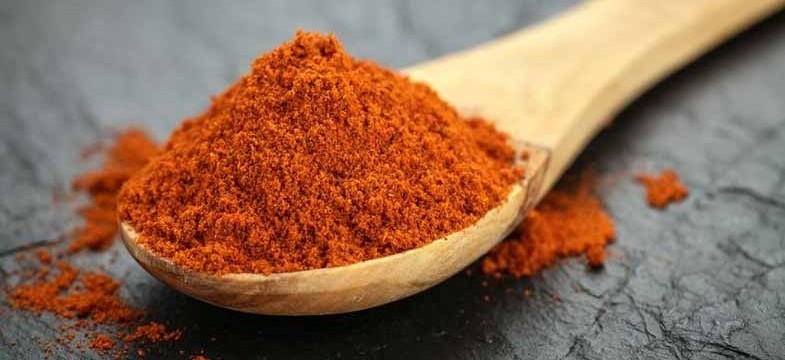Overview
|
Can You Overdose on Vitamin B12?
In light of the very high doses in many vitamin B12 supplements, some people are very concerned with the consequences of a potential overdose. And for good reason: with many vitamins, it would indeed be very dangerous to make such major interventions into the vitamin metabolism.
But is it possible to overdose with B12? Thankfully not: a toxic vitamin B12 overdose is not possible, as the body simple excretes any excess in the urine. Nevertheless, it is important to not go overboard with supplementation, as any unnecessary B12 must be excreted via the kidneys, which puts strain on the body, albeit manageable.
Generally, it is always preferential to cover the B12 requirement daily with a steady low supply than to consume a large amount to “stock up” the body. Even when absorption disorders are present, oral doses in the range of 1000 µg will suffice. Dosages higher than this are only useful in a therapeutic context or directly following a period of vitamin B12 deficiency.
Vitamin B12 Oversupply
The daily requirement of B12 is generally placed at around 3 µg per day for adults. Yet a much higher intake can even be obtained through B12 food sources, for example: 100 g of calf’s liver can deliver 60 µg B12 – around 2000% of the daily requirement, which is a very high oversupply.
If you look at modern B12 supplements, you will find dosages of up to 5000 µg per dose, about 160 000% of the daily requirement. While this might at first seem gigantic and superfluous, the intake of B12 via food/supplements does not correspond to the actual amount of the vitamin that is absorbed. As we will see below, only small amounts of B12 can actually be absorbed by the body.
This is why an overdose is sometimes even urgently needed to ensure the body obtains enough B12, especially if there is an absorption disorder present. Recent research suggests that the definitions of deficiency and the recommended daily dose may be set far too low; in the meantime, the question of at which level an oversupply of B12 occurs has not yet been clarified.
When is a Vitamin B12 Supplement Overdosed?
Due to the special intake mechanism of vitamin B12, only a small part of the dose supplied is actually absorbed by the body. The dose administered must therefore be significantly higher than the requirement. Three standard doses have been established at present:
- 500 µg – to cover the daily requirement
- 1000 µg – in the case of absorption disorders, increased need (pregnant/breastfeeding women and the elderly) and when experiencing slight deficiency symptoms
- 5000 µg – high dose initial therapy following B12 deficiency
More information: Vitamin B12 Dosages
Vitamin B12 Overdose: Symptoms and Side Effects
Today vitamin B12 has been extensively researched, yet even after decades of study almost no symptoms of overdose are known to follow the administration of extremely high doses. Consequently, no maximum dose of B12 has been set. Due to the above-mentioned excretion activity, in theory it is possible to take large amounts of the vitamin without hesitation and fear of side effects.
Only cyanocobalamin requires some caution, as when it breaks down in the body in unleashes small amounts of cyanide – a substance some people react badly to. However, these amounts are so minor that they are generally considered irrelevant at normal doses.
In individual cases, intramuscular injections of high doses of B12 have led to mild immune responses, such as skin irritations and a particular form of acne. Hot flushes, dizziness and nausea have also reported, but these are mostly attributed to preservatives contained in supplements rather than to the vitamin itself.
Very occasionally severe side effects of B12 injections can occur, such as anaphylactic shocks – the cause of which remains unknown. According to research, this primarily occurs when cyanocobalamin has been administered (1, 2).
Vitamin B12 and Acne
In some patients, particularly high doses of B12 injections led to outbreaks of acne, as has been shown in various studies. Unfortunately, it has not yet been researched as to why this occurs. Nevertheless, the acne disappears again as soon as the vitamin B12 supplements have stopped (3-5).
It has not yet been clarified as to which forms and doses of vitamin B12 trigger this. Since it has already been observed at doses of only 20 µg, the threshold appears to be different for each individual. Acne is not a sign of overdose; in most cases, the cause of the reaction is probably a genetic disposition, missing cofactors such as biotin or an allergy to cobalt (B12 contains cobalt as the central atom – hence the name cobalamin). Therefore, when a cobalt allergy is present this reaction can occur. A lack of biotin can also lead to acne; the simultaneous intake of B12 and biotin makes acne disappear in many cases.
Further reading: Vitamin B12 and Acne
Vitamin B12 Overdose and Pregnancy
According to current knowledge, even pregnant women do not have to worry about a B12 overdose. Since any excess of the vitamin is excreted in the urine, it does not enter the bloodstream and thus does not reach the foetus. Contrary to this fear, pregnant women in particular should pay attention to maintaining a sufficient supply of B12 and folic acid, as a deficiency can seriously damage the foetus.
Pregnant and breastfeeding women have an increased B12 requirement of about 4-6 µg per day; special attention should be paid to the B12 supply during this period. Nevertheless, dosages of more than 500 µg do not make sense here.
One High Dose vs Multiple Small Doses
Vitamin B12 deficiency treatment has shown that for patients with severe absorption disorders, only B12 supplements administered orally at a dose of about 500 µg/day lead to significant improvements in the relevant markers (6, 7).
Dosages of 500 – 2 000 µg/day have therefore been the standard in B12 deficiency therapy for many years. This is easy to understand if you consider the metabolism of the vitamin.
B12 is absorbed with the help of a special molecule called intrinsic factor (IF). In a healthy metabolism, only about 1.5 µg per dose can be absorbed by the body per intake via IF. A further 1% of the dose additionally enters the bloodstream via passive diffusion. For example, with a dose of 500 µg B12 only a maximum of 1.5 µg is absorbed via the IF and 5 µg via passive diffusion – this “overdose” is therefore much lower than it initially appears.
If a lower dose is administered this can even lead to an undersupply where there is an absorption disorder. If a supplement with 50 µg B12 is taken, for example, the 1.5 µg that is obtained via IF is almost completely eliminated in this instance and only 0.5 µg is absorbed via passive diffusion; only a fraction of the daily requirement is obtained, despite a seemingly high dosage.
Since most people with B12 deficiency suffer from an absorption disorder – i.e. their body cannot correctly utilise the vitamin – they are dependent on the small amounts that can be absorbed via passive diffusion. Consequently, an overdose of B12 is often useful, needed to achieve the desired elevation in B12 blood levels.
Vitamin B12 Overdose: the Vitamin B Complex
When taking a vitamin B complex, it should be noted that more caution is required with vitamins B5 and B6. The former may cause vascular dilation, itching, nausea, headache and allergies. If taken by the gram, it can even cause liver damage and inflammation of the gastric mucosa. The latter is harmless in usual amounts, but from 2 grams or more it can lead to movement and nervous disorders.
Vitamin B12 Overdose for Detoxification
There are also other cases where an extreme overdose of vitamin B12 is important for the success of the therapy. For example, very high doses of hydroxycobalamin are used to treat cyanide poisoning because the vitamin binds to and eliminates the cyanide (8). Ultra-high doses of methylcobalamin have been shown to be effective in the regeneration of nerves in both rats and humans (9, 10).
For further reading on the different effects of various B12 active ingredients, see the article: Vitamin B12 Forms
Vitamin B12 Overdose from Oral Supplements
For a long time, high dose intramuscular injections with B12 were considered particularly effective in therapy; today, most researchers believe that oral supplements containing high dose B12 are just as competent (11). Oral supplements – such as tablets, capsules or drops – can therefore be seen as just as potent as injections when dosed accordingly.
If absorption in the intestines is optimal, oral doses of 150-250 µg per day are sufficient. In the case of a known gastrointestinal disorder, however, supplements should contain at least 500 µg to safely compensate for malabsorption.
Since an overdose is hardly possible, the current trend for manufacturers is to sell supplements that exclusively contain quite a high B12 dosage. In principle, such supplements can be taken by anyone without danger. Even so, a dosage which greatly surpasses the actual requirement is somewhat unnecessary; supplements containing over 1000 µg per dose should be regarded with reservation.
Likewise, many naturopaths recommend a daily intake instead of huge monthly or weekly doses, which cause the B12 blood level to rise extremely for a short time only. Dosages in the range of 250 – 500 µg should be sufficient in almost all cases to cover the daily requirement.
Sources:
- Bilwani, Fareena, et al. Anaphylactic reaction after intramuscular injection of cyanocobalamin (vitamin B12): a case report. JPMA. The Journal of the Pakistan Medical Association, 2005, 55. Jg., Nr. 5, S. 217-219.
- Moloney, F. J., Hughes, R., O’Shea, D. and Kirby, B. (2008), Type I immediate hypersensitivity reaction to cyanocobalamin but not hydroxycobalamin. Clinical and Experimental Dermatology, 33: 412–414.
- Jansen T, Romiti R, Kreuter A, Altmeyer P. Rosacea fulminans triggered by high-dose vitamins B6 and B12. J Eur Acad Dermatol Venereol. 2001 Sep;15(5):484-5.
- Sherertz EF. Acneiform eruption due to “megadose” vitamins B6 and B12. Cutis. 1991 Aug;48(2):119-20. (Abstract)
- Braun-Falco O, Lincke H. The problem of vitamin B6/B12 acne. A contribution on acne medicamentosa. MMW Munch Med Wochenschr. 1976 Feb 6;118(6):155-60. (Abstract)
- Eussen SM, de Groot LM, Clarke R, et al.Oral Cyanocobalamin Supplementation in Older People With Vitamin B12 Deficiency: A Dose-Finding Trial.Arch Intern Med. 2005;165(10):1167-1172. doi:10.1001/archinte.165.10.1167.
- Rajan, S., Wallace, J. I., Brodkin, K. I., Beresford, S. A., Allen, R. H. and Stabler, S. P. (2002), Response of Elevated Methylmalonic Acid to Three Dose Levels of Oral Cobalamin in Older Adults. Journal of the American Geriatrics Society, 50: 1789–1795. doi: 10.1046/j.1532-5415.2002.50506.x
- John P. Thompson, Timothy C. Marrs Hydroxocobalamin in cyanide poisoning December 2012, Vol. 50, No. 10 , Pages 875-885 (doi:10.3109/15563650.2012.742197)
- Kuwabara S, Nakazawa R, Azuma N, Suzuki M, Miyajima K, Fukutake T, Hattori T Intravenous methylcobalamin treatment for uremic and diabetic neuropathy in chronic hemodialysis patients. In: Intern Med (1999 Jun) 38(6):472-5
- Tetsuya Watanabe, Ryuji Kaji, Nobuyuki Oka, William Bara, Jun Kimura, Ultra-high dose methylcobalamin promotes nerve regeneration in experimental acrylamide neuropathy, Journal of the Neurological Sciences, Volume 122, Issue 2, April 1994, Pages 140-143, ISSN 0022-510X, http://dx.doi.org/10.1016/0022-510X(94)90290-9.
- Butler CC, Vidal-Alaball J, Cannings-John R, McCaddon A, Hood K, Papaioannou A, Mcdowell I, Goringe A. Oral vitamin B12 versus intramuscular vitamin B12 for vitamin B12 deficiency: a systematic review of randomized controlled trials. Fam Pract. 2006 Jun;23(3):279-85. Epub 2006 Apr 3. Review. PubMed PMID: 16585128.


